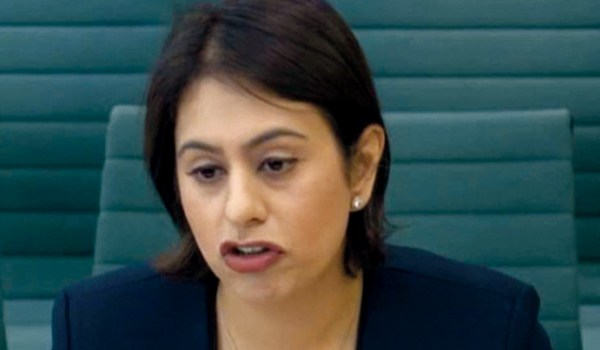A question of trust
Steve Dodd examines how community intelligence-led policing can help address declining confidence in the police.
Trust has rapidly become the topic of conversation; it appears that an inordinate amount of attention is being directed across the sphere of public service, particularly towards politics and policing.
Trustworthiness, integrity, honesty and truthfulness of the police are always a given, but with continual media attention focused on the political classes harmful reverberations have diverged across community ministrations.
The cause for applying community intelligence-led policing methodology (CILPM) to the front line will emphasise its value by addressing the current manifestation of a lack of trust in policing.
A fundamental premise of CILPM is that it not only forges better relations between the police and public, but provides both parties with a legitimately reciprocal reason to communicate.
A nationwide rollout of CILPM will enable forces to collect, corroborate, analyse and direct resources in response to the information being collated by frontline officers, who in turn are getting closer to working in the heart of communities through the Neighbourhood Policing Pathway – obtaining a fuller understanding of the reality of the local picture quantified by the principle of evidenced-based policing.
Trust, or an alleged lack of trust, in policing has been raising its ugly head for the past few years. Pejorative views in the media and prejudicial soundbites are all undermining trust, as well as contributing to a lack of authority of the police and the rule of law on our streets.
Reflection on the past 250 years is enlightening because the question continues to be asked: Is the doubt undermining trust in authority genuine? Back then the gauge was taken from the general will of each person putting their supreme power behind that of the common good. Step 200 years hence the general will of collective interests of community were seen as being in place to balance anarchy and tyranny. Three decades later, ‘social capital’ continued the familiar discussion topic, which refined networking and norms of social life into that of trust.
The insinuation of a ‘two-tier’ policing system using racism or misogyny to comment on an arbitrary incident is an example of current bias undermining trust.
It is evidenced in the manipulation of the stop and search of black elite athletes Bianca Williams and Ricardo Dos Santos in London and the exonerated officers of the Metropolitan Police Service. A Police Appeals Tribunal, sitting earlier this month at the International Dispute Resolution Centre in London, found the Independent Office for Police Conduct’s (IOPC) original decision that misconduct proceedings should take place was “irrational” and “inconsistent” in the case of two officers dismissed from police service.
Privately filmed footage of the incident posted online led to versions being shared widely on social media. These appeared to prejudicially reinforce comments delivered at an earlier 2023 hearing of the case, when IOPC Director Steve Noonan was quoted as saying, “it’s figures like these and cases like Bianca and Ricardo’s which emphasise why black people report having low trust and confidence in policing”.
Negative consciousness is continually being deepened. An article in the Daily Mail newspaper on October 7, read: ‘Death of the bobby on the beat: Parts of England and Wales now only have one neighbourhood police officer for every 12,000 residents… so how bad is the situation in YOUR area?’
It said that only nine per cent of police officers in England and Wales are designated ‘bobbies on the beat’. This was more widely generalised by Lincolnshire’s police and crime commissioner highlighting the physical isolation of its rural and urban conurbations.
The article contained a comment from Tiff Lynch, acting national chair of the Police Federation of England and Wales, who told MailOnline the increasing lack of police presence on the streets has “slowly eroded” public trust… “neighbourhood policing officers are the heart of the community, and their visible police presence plays a pivotal role in building public confidence, which has been slowly eroded over the years”.
Andy Higgins, research director at the Police Foundation, was also referenced: “The public report seeing fewer patrols in their communities and don’t feel the police understand or deal with local problems as well as they once did. We know these things are important for public confidence and feelings of safety.”
The article included an analysis of police financial forecasts by public service union Unison, which in 2023 revealed forces in England and Wales could face a combined budget shortfall of £720 million by 2026, sowing yet more seeds of doubt – can we actually afford neighbourhood policing as is or is there going to be yet another piecemeal gesture?
The divisive misinformation propaganda of populism or the consequence of misquotes presented as fact across various platforms is having a hugely negative effect on trust, which is further destabilised by feelings of things being seemingly not as they should be or what they used to be.
This is all undermining the credibility of government institutions, reaffirming the negativity of public viewpoints, and questioning the integrity of politicians. Authenticating exposure of maladroit officials, intensifying news of corrupt or abhorrent criminal activity of public officials and police officers alike are illustrations borne out on an almost daily basis, evidenced through an abundance of material circulating the ether irrespective of political points-scoring.
Unfortunately, an inadvertent consequence of technological advances is another source of mistrust formed within the general population; for example, deployment of safety and priority surveillance drones as a response tactic, police responding to non-emergency calls by video, the facial recognition debate, digital interview recording, a mental health approach of a ‘right care/right person’ framework, are all interpreted by the naysayers as police avoiding community collaboration.
Interpreting arbitrary benchmarks of trust in police is a modern-day issue governed by societal norms. Individuals and communities alike have learnt to put their faith into the hands of experts right across the spectrum, including that of education, law enforcement, medicine or political consultancy. The sacrifice of independent personal self-sufficiency in many aspects of everyday life has been traded in for the reassurance of security in a professional qualification. However, when that trust is undermined, confidence is seriously threatened.
A further consideration often minimised when discussing policing is that of lived experiences. Many people have been victims of one form of criminality or another, a considerable number of members of the public watch police-drama television, news broadcasts, even view youths congregating in high streets or shopping centres. A result is a perception of how they believe their community should be policed due to the way law and order has been historically presented to them.
Ultimately, though, the subconsciousness of these ethereal thoughts is not too abstract to contribute to a rational debate. Subliminal association of the loss of confidence and trust with that of elements of lawless behaviour is disconcerting for many; the violation of trust references and re-introduces experiences for victims of all crime including those of so called, white-collar crime, be it fraud, domestic violence or that of violence against women and girls.
Neighbourhood policing policy needs to emphasise the importance of strategy in this area by promoting a counter-position; a solution right at the heart of the matter: Transparency.
One of the values of transparency is trustworthiness, the reasoning being that the more transparent an organisation is the more honest it must be, because it is less likely to be able to hide misconduct. This in turn will positively reinforce trust in the organisation.
It was Facebook founder Mark Zuckerberg who is attributed as saying, transparency increases integrity. It can be further argued that it also increases safety and promotes accountability, both organisationally and individually.
Enhancement of trust is critical to the debate, to paraphrase Onora O’Neill, transparency is supposed to discipline institutions and their officeholders by making information about their performance more public. Publicity is taken to deter corruption and poor performance, and to secure a basis for ensuring better and more trustworthy performance.
Similarly, transparency through publicity can be said to increase connections between people, which in the social media age can in-turn provide the assurance of knowledge and support.
Controversy over a chief constable suspended for a gross misconduct allegation, confirmation of more than 100,000 officers having undertaken sexual harassment training, and notice of the IOPC support for handling of police perpetrated domestic abuse allegations, all illustrate an evolving picture of openness.
Multi-agency security panels examining domestic abuse investigations, His Majesty’s Inspectorate of Constabulary and Fire and Rescue Services’ call for an improved policing response to anti-social behaviour, and a morale and wellbeing crisis as reported by the Police Superintendents’ Association, substantiate a commitment to truth.
The ontological case of neighbourhood officers patrolling their community beats, liaising, conversing, communicating in an open and transparent manner. Solving problems, addressing issues, offering suitable advice, de-escalating confrontation, providing protection, solace, reassurance; preventing and detecting crime, listening, while all the while building trust.
Transparency of duty and responsibility in a fair, unbiased, open and legitimate capacity is where the public wants reassurance through knowledge. Trustworthiness is a virtue of wearing the uniform and serving all communities of this country.
CILPM is where trust is identified, earned, exhibited, valued, nurtured and reinforced; it is the face-to-face interaction between people, the reciprocal nature of being a member of a community.
The capture of the minutia of criminality and of civil disobedience negatively impacting on the lives of the public is the foundation on which community safety is borne, because this is where trust is fostered. It is a scenario for everyday life, a recognition of an understanding that if minor infractions of anti-social behaviour go unaddressed, they will develop into a lack of respect for authority, escalating ultimately to violence and lawlessness across neighbourhoods.
CILPM reinforces the bond between neighbourhood police and their local communities. A structured, citizen-centric framework supporting the fabric of society, through cooperation, understanding and mutual respect. A loss of trust means less safe communities; petty crime and anti-social behaviour will go unreported, restorative interventions will suffer setbacks, offenders avoid justice, victims will not get resolution or restitution.
Community safety is police working in tandem with neighbourhoods, guiding the partnership in the confidence a common goal, ethically and with trust, re-establishing authority and the rule of law on the streets of England and Wales.
Protection from harm of our most precious loved ones is as fundamental as the safety and security of possessions, property and lifestyle, all of which is non-negotiable, as is the right of a just and fair society defended by the rule of law.
The threat of forfeiture of trust for anyone is profoundly unsettling for everyone… everywhere.
Steve Dodd is a retired South Wales Police detective. He is a subject matter expert on police intelligence having authored the force’s Community Intelligence Force Policy. An adviser on the College of Policing’s Intelligence Professionalisation Programme, he was deployed on the Government’s working group on the Western Balkans Serious Organised Crime strategy. An international liaison officer, he is an international airline certified extradition officer, plus National Financial Investigator qualified. He is currently writing his ‘Community Intelligence-Led Policing Methodology’ including the octahedron pyramid, a transtheoretical approach, and an inverted strategy thesis.






